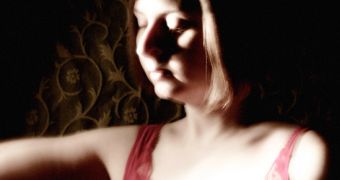Getting no sleep can be the main reason of one's zombie-like behavior, meaning, for sleepwalking. "Sleepwalkers should keep a regular bedtime to avoid unwanted evening strolls," said Antonio Zadra of the Universit? de Montr?al, lead researcher of a study published in the Annals of Neurology journal, a study that connected sleep loss and sleepwalking in predisposed individuals.
Sleepwalking or somnambulism is experienced by 4% of adults, and its effects can range from mental confusion to bouts of amnesia and even physical injuries. "Sleepwalking is common in kids, but usually they outgrow it," Dr. Vishesh Kapur, director of the University of Washington Sleep Disorders Center at Harborview Medical Center told LiveScience.
40 suspected sleepwalkers, tested between August 2003 to March 2007, were initially analyzed for their baseline sleep patterns. In later tests, the subjects were kept awake for the entire evening and monitored. They were allowed to get their recovery sleep only the next morning, after 25 hours of staying awake.
The patients were monitored via video cameras during their recovery sleep. Their behavior varied from playing with the bed sheets to attempts at jumping over the bed rails. The complexity of the subjects' behavior was classified on a three-point scale. Baseline sleep was connected to 32 of sleepwalking behaviors in 50% of the patients. Recovery sleep induced sleepwalking in 90% of the subjects.
Sleepwalking is "a disorder of arousal, a kind of mixed state of being. There are three states of being in the world of sleep researched - wakefulness, non-REM (rapid eye movement) sleep and REM sleep (most associated with dreams). Sleepwalking is a mixture of wakefulness and non-REM sleep. Some sort of arousal or disruption to sleep can also trigger sleepwalking. So people with sleep apnea sometimes sleepwalk, because apnea can create a state where someone is in between non-REM sleep and wakefulness," Kapur explained.
"Family genetics can also predispose one to sleepwalking. We know that sleepwalking happens more often in children than in adults, and the predisposing factor there might be the fact that kids have a lot more of slow-wave sleep, a deep non-REM sleep where sleepwalking often starts," he added.
The main issue with the sleepwalking is the fact that the sufferers can hurt themselves. "Treatments for sleepwalking include better sleep hygiene, keeping a regular sleep schedule and avoiding an excess of alcohol and caffeine or maybe any at all, particularly in the evening. For extreme cases, medication may be prescribed," Kapur concluded by saying.

 14 DAY TRIAL //
14 DAY TRIAL //